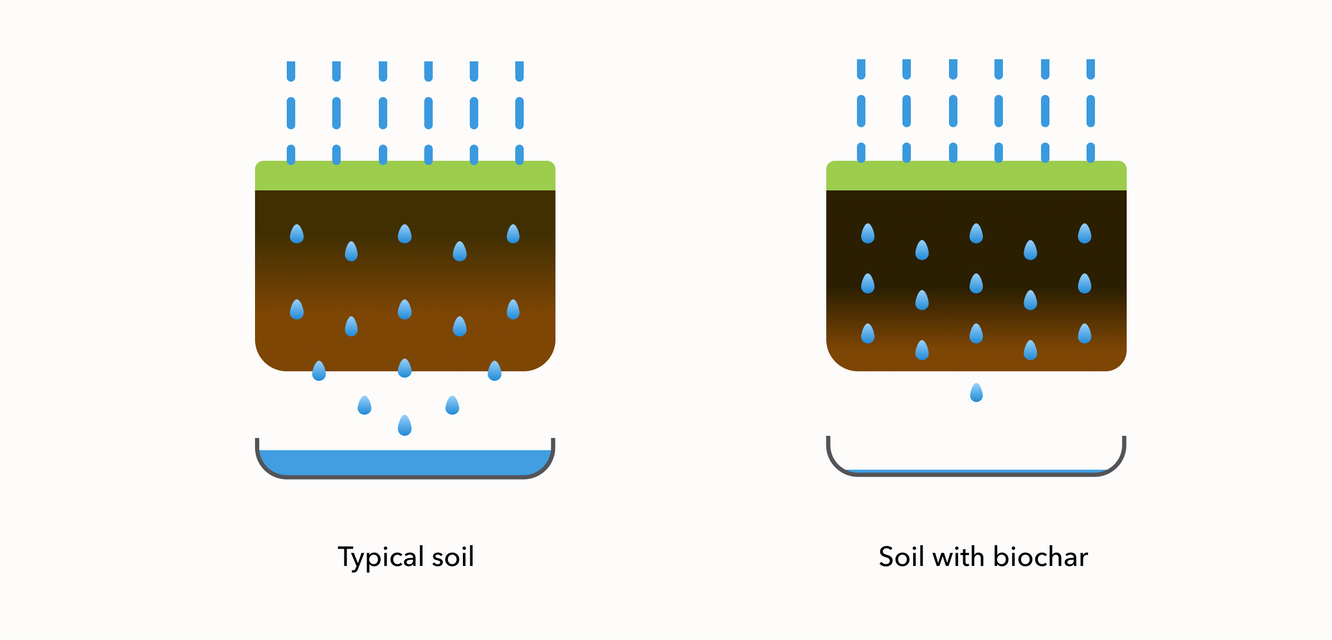Although the above results are impressive, we expect for you to get even better results with our unique biochar activation formula. Scientific studies tend to often use non-activated (naked) biochar to reduce variables inputs, but it's the activation of biochar that gives it so many of it's beneficial properties.
Biochar increases water retention
Water retention, or water holding capacity, is the measure of your soil's ability to retain moisture.
- A 2013 study found that biochar application more than doubled the water holding capacity (from 16% to 32.5%) in loamy sand soils that are prevalent in North America.
- A 2012 study in Iowa found that just a 6% (by soil volume) biochar application increased local water holding capacity by 23% relative to control.
- In our 2022 product test with PHD Jonathan Mongomemry, we measured a 30% increase in water holding capacity from a 15% application of biochar.
Note that these studies were using naked biochar (not activated) to limit variances. Activating biochar as we do in our products will only further increase the water holding capacity of biochar.








